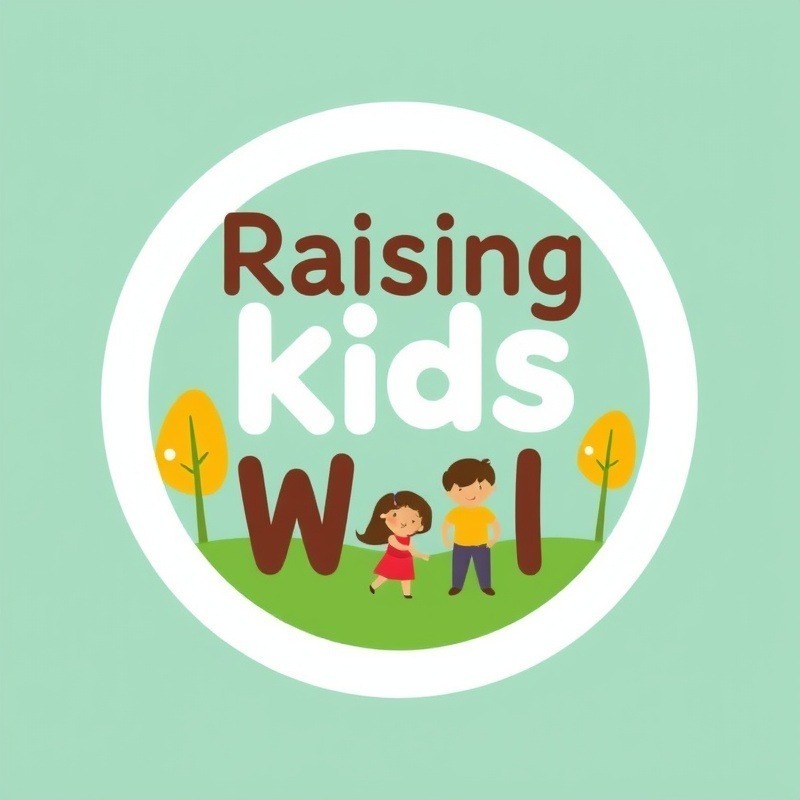Did you know? Research suggests that children raised with authoritarian parenting are twice as likely to experience anxiety disorders compared to those raised with authoritative parents. The way we parent shapes not only our children’s immediate behavior but also their mental health and success down the line. In this comprehensive guide, you’ll get an inside look at the authoritarian parenting style—what it is, how it works, its notable traits, and real-life impact on children’s development.
A Startling Look at Authoritarian Parenting: Surprising Statistics & Facts
Authoritarian parenting may sound like a relic of past generations, but it remains a widespread style of parenting across the globe. Data from child development research shows that up to 30% of households in certain regions utilize a primarily authoritarian parenting style. While this approach can seem effective in cultivating obedience and discipline in children, surprising findings reveal noteworthy drawbacks. For example, schoolchildren raised with high levels of strictness often exhibit lower self-esteem and higher levels of anxiety, as demonstrated in multiple child psychology and mental health studies.
“Research suggests that children raised with authoritarian parenting are twice as likely to experience anxiety disorders compared to those raised with authoritative parents.”
Studies link strict, high-expectation homes to increased behavioral and emotional challenges in children.
Authoritarian parents tend to enforce rules with little to no dialogue, which may stifle emotional growth.
Children raised in this style may show compliance at school but struggle with confidence and independence later in life.
Despite frequent use, the negative effects often remain underestimated in modern parenting discussions.

The Impact of Authoritarian Parenting on Child Development
Researchers in child psychology have consistently found that authoritarian parenting can lead to several unintended consequences in child development. While strictness and control sometimes prevent immediate behavioral issues, the high level of parental demand coupled with low warmth may affect early childhood mental health. Children of authoritarian parents tend to follow rules without question, but often at the cost of creativity, self-expression, and emotional resilience. Notably, a 2022 International Journal of Child Psychol study noted that these children experience more stress and are at risk for both internalizing (anxiety, depression) and externalizing problems (aggression, defiance).
Instead of nurturing an environment where children feel safe to ask questions and share opinions, the authoritarian style of parenting stresses obedience above all. This approach can create a pattern where children achieve high academic standards due to pressure, but may later encounter issues with peer relationships, social skills, and long-term self-worth. The negative effects can persist into adulthood, warranting a more thoughtful approach to parenting styles.
What You’ll Learn About Authoritarian Parenting
Understand the definition and core traits of authoritarian parenting
Explore distinct examples and real-life scenarios involving authoritarian parents
Compare authoritarian parenting style to other parenting styles
Review the psychological and developmental impact of authoritarian parenting
Learn how to identify authoritarian parenting practices and their outcomes

Defining Authoritarian Parenting: Core Traits and Principles
Authoritarian parenting is one of the classic “4 parenting styles” identified in child psychology. At its root, this style is defined by strict discipline, unwavering expectations, and low responsiveness to a child’s emotional needs. Unlike authoritative parents who balance structure with nurturing, authoritarian parents believe that children should follow set rules without question, prioritizing uniformity over individuality.
The core principles behind authoritarian parenting are clear: the parent is always right, and rules must be obeyed under any circumstance. While this parenting style is often mistaken for simply “tough love,” it is distinguished by a noticeable lack of emotional connectivity and open communication. This approach can escalate to child abuse when it’s overly rigid and punitive, blurring the line between discipline and harshness.
What Makes an Authoritarian Parent?
Strict rules and expectations
Low responsiveness to child’s needs
High value on obedience and discipline
Limited open dialogue
“Authoritarian parents believe obedience is the cornerstone of good behavior.”
Comparison Table: Authoritarian Parenting vs. Authoritative Parenting |
||
Aspect |
Authoritarian Parenting |
Authoritative Parenting |
|---|---|---|
Approach |
Strict, high expectations, one-way communication |
Clear standards, nurture and flexibility, two-way dialogue |
Communication |
Limited, top-down directives |
Open, encourages child input |
Discipline |
Punishment-focused, harsh consequences |
Explains consequences, uses guidance |
Authoritarian Parenting Style: Key Characteristics

Authoritarian Parent Versus Authoritarian Parenting Style
Rigid and inflexible with family rules and standards
Quick to enforce discipline—often punishment-based
Low levels of warmth and limited praise
Rarely listens to or acknowledges a child’s opinion
Demands high-level obedience at all times
It is important to distinguish between an authoritarian parent—the individual who consistently enforces these strict rules—and the broader authoritarian parenting style, which is a pattern of parenting practices emphasizing control and compliance. While both are linked, families may fluctuate in how strictly they follow this style depending on the situation or cultural background.
Authoritarian Parents: Typical Behaviors and Communication
Orders are given without explanation (“Because I said so”)
Punishment is often used quickly when rules are broken
There is little encouragement or space for honest conversations
Discipline means enforcing compliance, not offering guidance
Children rarely get to explain their side or feelings
Unlike permissive parents who may be lenient, authoritarian parents lean on strict oversight in all aspects, from schoolwork to curfews. This style of parenting can ensure high academic achievement short term, but often fails to build the social or emotional skills needed for life beyond childhood.
Authoritarian Parenting Examples in Real Life
Practical Scenarios: Authoritarian Parenting in Action
Excessive monitoring of homework and demanding perfect results
Zero tolerance for any form of backtalk or disagreement
Establishing a fixed bedtime with absolutely no exceptions—even on special occasions
Enforcing strict curfews and rules with no reasoning provided or discussed

In real life, authoritarian parenting behaviors might include a parent who checks every answer on a child’s homework and corrects mistakes sternly, refusing to tolerate excuses or explanations. Bedtimes and mealtimes are rigidly enforced, often regardless of context. When a child questions why a rule exists, the standard response is, “Because I said so.” Such strict discipline can seem effective initially, but research shows it may do more harm than good over time.
How Does Authoritarian Parenting Affect a Child?
Short-Term and Long-Term Effects of Authoritarian Parenting

Negative impact on emotional development—children may be less expressive and more anxious
Higher risk of developing externalizing problems, including aggression or defiance
Children often comply outwardly but may develop resentment or withdraw emotionally
Effects Table: Authoritarian Parenting vs. Other Parenting Styles |
||||
Outcome |
Authoritarian |
Authoritative |
Permissive |
Uninvolved |
|---|---|---|---|---|
Academic Achievement |
High (due to pressure) |
High |
Variable |
Low |
Social Skills |
Poor or rigid |
Strong & flexible |
Good but lacks boundaries |
Poor |
Emotional Health |
Higher risk of anxiety/depression |
Stable, positive |
May be impulsive |
Detached, at risk |
“Children with authoritarian parents often follow rules, but at the cost of self-esteem and emotional expression.”
Children of authoritarian parents tend to succeed in highly structured environments but struggle when independence and decision-making are needed. According to leading research published in child psychology journals, they may also become more susceptible to negative peer influences as they grow older, searching for acceptance they didn’t feel at home.
Authoritarian Parenting vs. Other Parenting Styles
Comparing the Four Major Parenting Styles
Parenting Styles Overview: Authoritarian, Authoritative, Permissive, Uninvolved |
||||
Parenting Style |
Discipline |
Communication |
Nurturing |
Expectations |
|---|---|---|---|---|
Authoritarian |
Strict, punishment |
One-way, little explanation |
Low |
High |
Authoritative |
Firm but fair, guidance-oriented |
Dialogue encouraged |
High |
High but realistic |
Permissive |
Lenient, few rules |
Open, child-driven |
High |
Low |
Uninvolved |
Neglectful, little guidance |
Minimal |
Low |
Low |

With authoritarian parenting, discipline is strict, communication is minimal, and emotions are rarely validated.
Authoritative parenting is balanced: structure is paired with warmth, leading to positive academic and emotional outcomes.
Permissive parents may be loving but lack in boundaries, risking impulsivity in children.
Uninvolved parents are largely detached, often resulting in children struggling across developmental aspects.
Authoritative Parent vs. Authoritarian Parent: Critical Differences
Why Authoritative Parenting is Often Viewed as More Effective
Authoritative parenting provides greater emotional support to children, fostering resilience.
This style encourages open, two-way communication and invites children’s opinions and questions.
Balanced discipline and autonomy allow children to learn self-regulation within a supportive framework.
“The authoritative parent guides rather than controls.”

The authoritative parent sets high expectations but matches them with high responsiveness, supporting both academic achievement and healthy child development. Children raised in this environment generally display better social skills, emotional resilience, and adaptability in new situations—critical traits for life outside the home.
Recognizing Authoritarian Parenting Practices in Your Home
Signs You May Be an Authoritarian Parent

Do you often say, “Because I said so,” without further explanation?
Are punishments swift and without room for discussion?
Is there little praise or emotional support, regardless of your child’s achievements?
Are expectations rigid, with little flexibility for circumstances?
Does your child feel nervous to express differing opinions?
How to Shift from Authoritarian Parenting Style to a Healthier Approach
Gradual changes in parenting practices can make a remarkable difference. Start by opening more conversations about feelings and reasons behind rules. Set clear, consistent boundaries—but allow for questions and honest discussions. Incorporating warmth and positive reinforcement helps children develop trust, independence, and confidence. Consider adopting strategies from authoritative parenting: listen more, explain more, and foster a nurturing environment within the structure you provide.
Why Parental Practices Matter: The Science Behind Parenting Styles
Research on Parenting Styles and Outcomes
Extensive research shows that authoritarian parenting is linked to higher risks of externalizing problems (aggression, defiance) and internalizing problems (anxiety, low self-esteem).
Children thrive when exposed to high levels of warmth, responsiveness, and firm—but flexible—expectations.

Child psychology and developmental research consistently prioritize warmth, involvement, and adaptability as essential aspects of effective parenting. The positive effects of the authoritative parenting style—marked by open dialogue, encouragement, and consistent, yet reasonable boundaries—underscore why so many experts urge parents to move away from the rigid, demanding model of authoritarian parenting.
Debate: Are There Any Advantages to Authoritarian Parenting?
“Clear boundaries can foster resilience, but inflexible rules may stifle growth.”
Some research points to potential benefits of consistency and structure, such as increased discipline in high-risk environments.
Cultural differences matter: in some societies, strict parenting practices are linked to collective goals and respect for elders, and children thrive under that structure.
While structure can be helpful in providing stability—especially for young children or in uncertain environments—excessive rigidity may affect a child’s confidence and mental health. A thoughtful balance is generally recommended.
Parenting Practices Across Cultures: Is Authoritarian Parenting Always Harmful?
Cultural Contexts Shaping Authoritarian Parenting Style

Cultural norms heavily influence what is considered “strict” parenting. For example, in some East Asian cultures, high expectations and discipline are signs of care and involvement, not rejection.
Case studies from Europe, Asia, and Latin America show that the meaning and outcomes of authoritarian parenting vary dramatically depending on cultural context and family values.
Parental control may support academic achievement and respect for authority in some cultures, but can be problematic when not balanced with warmth and understanding. Recognizing this, modern parenting research now encourages culturally sensitive approaches while upholding the importance of emotional support and open communication.
What Does Authoritarian Parenting Do to a Child?
Impact of Authoritarian Parenting on Academic Performance and Social Skills
Children often exhibit lower self-esteem and higher anxiety when raised with overly strict rules.
They may perform well in highly structured environments but struggle with independence and making choices on their own.
Answer
Authoritarian parenting often leads to children obeying rules, but it can also result in low self-worth, limited social skills, and increased risk of internalizing or externalizing problems. Its effects on academic outcomes and emotional well-being are often less favorable than those seen with authoritative parenting.
What Are Examples of Authoritarian Parenting?
Imposing strict schedules and routines without room for flexibility
Relying on punishment instead of explanations when rules are broken
Expecting orders to be followed immediately, regardless of circumstances
Answer
Examples of authoritarian parenting include enforcing bedtimes without discussion, demanding immediate obedience, punishing mistakes harshly, and rarely listening to a child’s opinion.
What Are the 4 Parenting Styles?
Authoritarian parenting
Authoritative parenting
Permissive parenting
Uninvolved parenting
Answer
The four recognized parenting styles are: authoritarian, authoritative, permissive, and uninvolved. Each varies in approach to discipline, communication, and nurturing.
What Is the Most Effective Parenting Style?
Authoritative Parenting: Why Experts Say It's Best
Balances warmth and structure, providing both emotional support and clear expectations
Adaptable and flexible, fostering independence and resilience in children
Answer
The authoritative parenting style is generally considered the most effective for healthy child development, combining firm guidance with warmth and open communication.
Key Takeaways on Authoritarian Parenting
Authoritarian parenting is characterized by strict rules and low emotional responsiveness.
While it creates structure, it may inhibit a child’s confidence and social skills.
Parenting styles influence developmental outcomes—it’s crucial to strike a healthy balance.
Frequently Asked Questions About Authoritarian Parenting
What differentiates authoritarian parenting from authoritative parenting? Authoritative parents combine high expectations with support and open communication, while authoritarian parents demand obedience with little warmth or flexibility.
Can authoritarian parenting ever be beneficial? While some children in high-risk settings benefit from structure, most experts urge a balance of warmth and firm boundaries for better long-term outcomes.
How can I recognize if I am using authoritarian practices? Frequent use of orders without dialogue, swift punishments, and a lack of warmth are common indicators of authoritarian parenting.
“Parenting is not one-size-fits-all, but understanding the research can guide families toward more effective strategies.”
Moving Forward: Embracing Effective Parenting Styles
Reflect on your parenting style and its effects on your child’s development.
Start identifying small changes to foster better communication and emotional warmth at home.
Seek support and explore further educational resources if needed to help make the shift toward a healthier approach.
Ready to Reflect? Discover More About Parenting Styles
Explore our related guides on authoritative parenting and healthy discipline strategies.
Download our free parenting practices checklist today and start your journey to more effective parenting!
 Add Row
Add Row  Add
Add 



Write A Comment